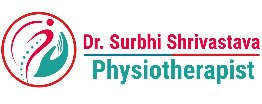
Speech therapy, also known as speech-language therapy or communication therapy, is a specialized field of healthcare that focuses on diagnosing and treating communication disorders and difficulties related to speech, language, voice, and fluency. Speech therapists, also known as speech-language pathologists, work with individuals of all ages, from children to adults, who may experience challenges in expressing themselves verbally, understanding language, articulating sounds, or stuttering. The goals of speech therapy include improving communication skills, enhancing articulation and pronunciation, addressing language comprehension and expression, and helping individuals develop effective non-verbal communication skills.
Speech therapists employ a variety of techniques and exercises tailored to the specific needs of each client, often working collaboratively with other healthcare professionals, educators, and families to provide comprehensive support. Through individualized therapy plans, speech therapy aims to empower individuals to communicate more effectively and participate fully in social, academic, and professional aspects of life.
Benifit of Speech therapy
 Speech therapy offers a multitude of benefits for individuals facing communication challenges and disorders. One primary advantage is the improvement of speech and language skills. Through targeted exercises and interventions, speech therapists help individuals enhance their articulation, pronunciation, and overall communication abilities. Another key benefit is the promotion of effective communication in various social settings. Speech therapy addresses issues such as language comprehension and expression, enabling individuals to engage more confidently in conversations and navigate social interactions. Additionally, speech therapy plays a crucial role in supporting academic success, as it targets language skills essential for reading, writing, and overall cognitive development.
Speech therapy offers a multitude of benefits for individuals facing communication challenges and disorders. One primary advantage is the improvement of speech and language skills. Through targeted exercises and interventions, speech therapists help individuals enhance their articulation, pronunciation, and overall communication abilities. Another key benefit is the promotion of effective communication in various social settings. Speech therapy addresses issues such as language comprehension and expression, enabling individuals to engage more confidently in conversations and navigate social interactions. Additionally, speech therapy plays a crucial role in supporting academic success, as it targets language skills essential for reading, writing, and overall cognitive development.
For those who may experience voice disorders or difficulties with fluency, speech therapy can contribute to the development of a clear and confident voice. Moreover, speech therapists often collaborate with families, caregivers, and educators to provide strategies for continued support outside the therapy sessions, fostering a holistic approach to communication improvement. Overall, the benefits of speech therapy extend beyond the immediate treatment of communication disorders, positively impacting individuals’ personal, academic, and professional lives.
Speech therapy F&Q's
Speech therapy can address a range of conditions, including articulation disorders, language delays, voice disorders, fluency disorders (such as stuttering), and cognitive-communication disorders resulting from conditions like stroke or traumatic brain injury.
Speech therapy can benefit individuals of all ages, from infants with feeding difficulties to seniors dealing with communication challenges. Early intervention is often crucial for better outcomes, but individuals can seek speech therapy at any stage of life.
The duration and frequency of speech therapy vary based on the individual’s needs and the nature of the communication disorder. Some may require short-term therapy, while others with more complex issues might benefit from long-term or ongoing sessions.
Speech therapists use a variety of methods, including articulation exercises, language games, vocal exercises, and technology-assisted tools. Therapy is often tailored to the specific needs and preferences of the individual to maximize effectiveness.
Speech therapy can help individuals with ASD improve communication skills, including language development, social communication, and pragmatic skills. Therapists work to enhance both verbal and nonverbal communication, fostering better interaction and understanding.
Yes, speech therapy can assist individuals in modifying accents or overcoming speech difficulties associated with learning a second language. Therapists focus on pronunciation, intonation, and other linguistic aspects to improve overall communication proficiency.
